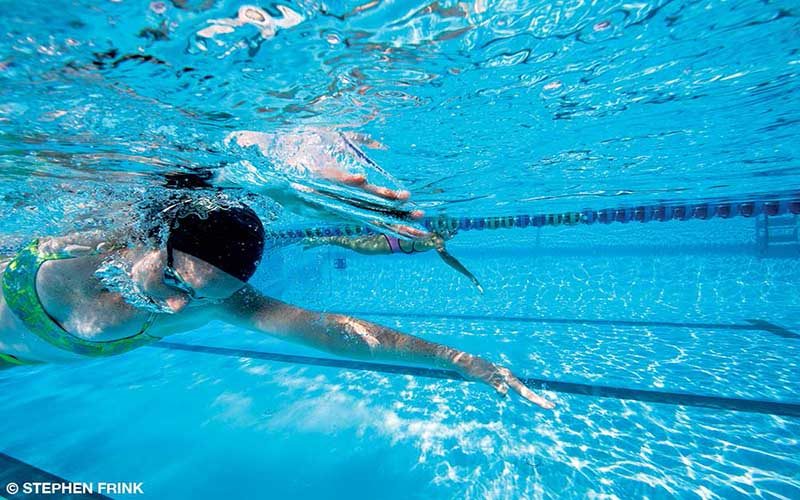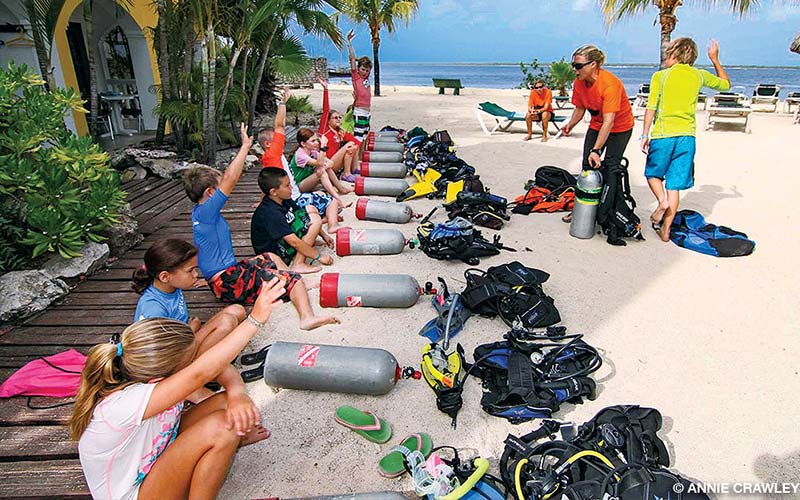Finding Your Fitness
As with any exercise, it is important to honestly and accurately assess your fitness level before diving. There are assessments you can do at home to test your fitness for dive and ensure you’re in good health.

As with any exercise, it is important to honestly and accurately assess your fitness level before diving. There are assessments you can do at home to test your fitness for dive and ensure you’re in good health.

Parents often express reservations or concerns about going on dive vacations with their kids. But it’s a joint reasonability from both parents and dive operators.

Scuba diving demands not only physical fitness but also proper nutritional preparation. Like with any activity, we expend energy while diving; surprisingly, the energy required for routine recreational diving is somewhat moderate. Under unusually strenuous recreational conditions, however, it’s possible to burn more than 500 calories.

If it took two planes, a boat and a hike to get somewhere, getting out will usually be similarly complicated. With that in mind, always prepare for safe travel.

Dive-accident victims benefit from the use of oxygen in two fundamental ways. Learn how they benefit and how to administer oxygen.

Make it your standard practice to gently and completely turn on your air. If you’re an instructor, consider not teaching students the quarter-turn back. Dive operations should instruct their staff not to perform the quarter-turn-back practice on customers’ cylinders. Confusing the direction of a handwheel does not happen only to new or inexperienced divers. There have been anecdotal reports of divemasters on busy boats accidentally turning off customers’ cylinders and then performing only a quarter-turn on.

Fresh-water diving comes with increased risks. Why is that? Learn more about the risks and how to dive in fresh-water environments safely.

Freediving is growing in popularity but the sport does come with risks because of how divers hold their breaths for long durations. Learn more about the safety of freediving.

Certain medications can impact your health and/or ability to dive. There are important considerations that need to be made before heading into the water.

Diving experience is incredibly helpful to ward off certain risks. We experience risk in different ways and some ways provide helpful lessons. Read more.
